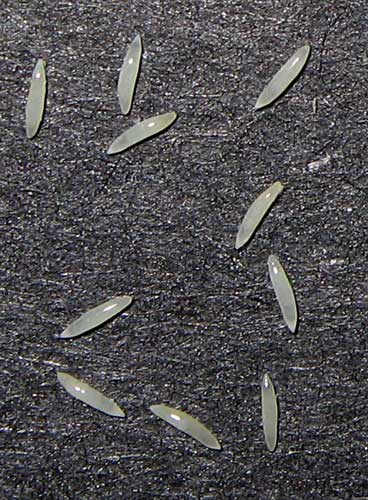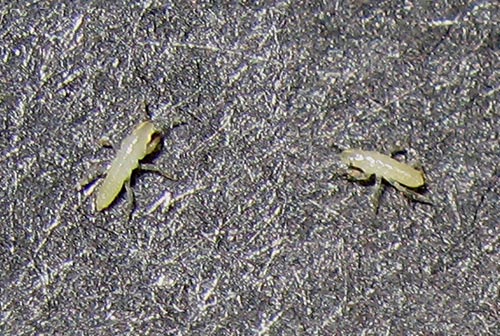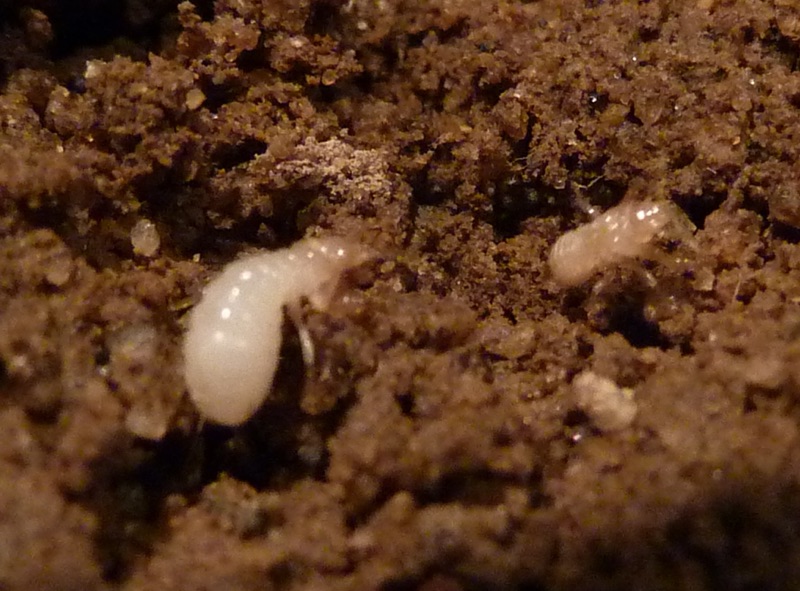So, what do cicada larvae look like? Technically they’re called nymphs, not larvae. When cicadas progress from one stage of development to another, they molt, rather than pupate. Each stage of development is called an instar. Most, if not all, cicadas go through five instars. The adult phase is the fifth instar.
First, here’s what their eggs look like:

Photo by Roy Troutman.
When the eggs hatch, the cicadas don’t look like a grub or maggot as you might expect; instead they look like tiny termites or ants, with 6 legs and antennae. At this point, they’re called first instar nymphs.
Here are some first instar cicadas:

Photo by Roy Troutman.
Here is a first and second instar cicada in the soil:

Photo by Elias Bonaros.
Here is a first, second, third, and fourth instar:

Photo courtesy of Chris Simon.
If you are interested in participating in cicada nymph research, visit The Simon Lab Nymph Tracking Project page for more information. You must have had periodical cicadas on your property in the past 13 or 17 years to find the nymphs — not including the Brood II area since those nymphs came out of the ground this year.




